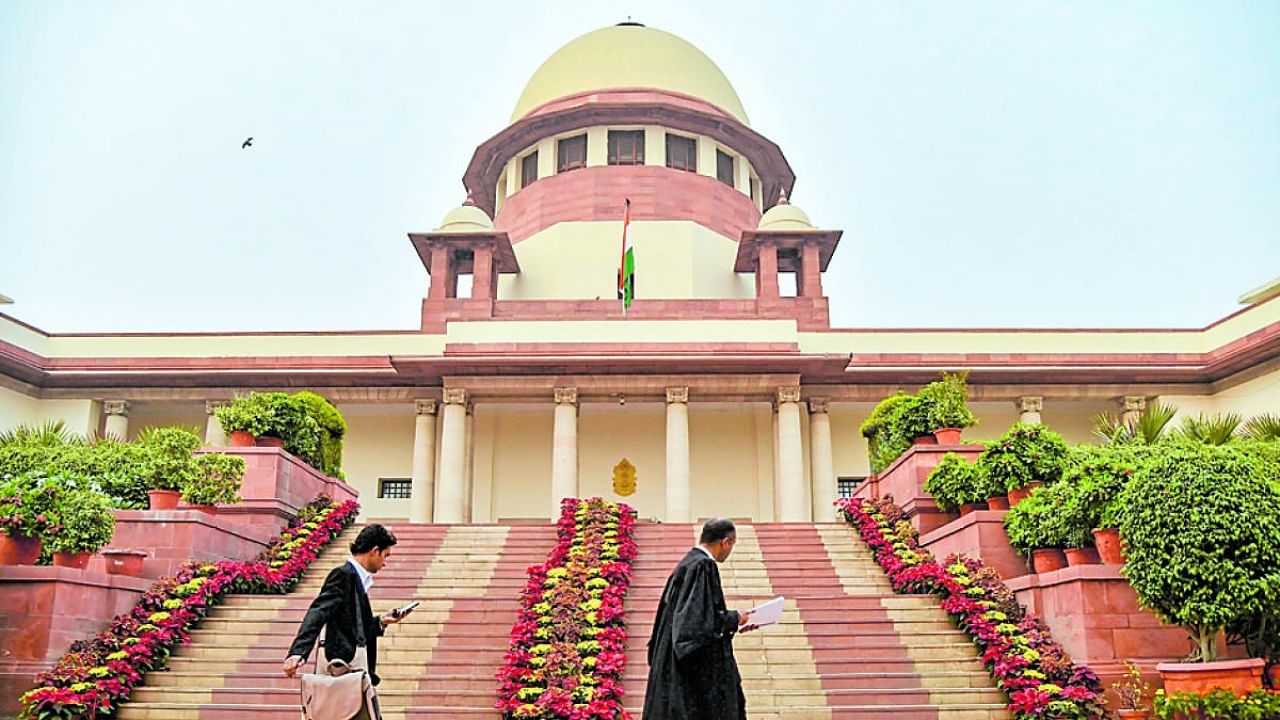
The Supreme Court on Thursday asked the petitioners challenging validity of August 5, 2019 decision to dilute special status of Jammu and Kashmir under Article 370 of the Constitution by asking as to how it can be said that the Parliament could not have exercised its plenary power to abrogate the temporary provision.
Arguing for National Conference leader Mohd Akbar Lone on day two of hearing, senior advocate Kapil Sibal submitted before a five-judge bench led by Chief Justice of India D Y Chandrachud that the power could not have been exercised in the manner, it was done.
"At some stage or another, this had to be done but then it must follow the constitutional way to be doing it," he said.
Sibal contended Article 370 could not be abrogated since the Constituent Assembly of Jammu and Kashmir, which was entrusted to recommend its abrogation or modification, had already stood dissolved in 1957.
"You're saying that there is a provision which like the basic structure lies even beyond the amending powers of the Constitution? How can you say that the Parliament could not have exercised its plenary amending power to abrogate Art 370," the bench asked him.
Sibal reiterated his argument that it was a political move done in a manner which is not available in the Constitution.
He said the power of the Union government and process adopted by it is the limited issue to be decided by the top court. "There has to be constitutional way of doing it but they circumvented the Constitution," he said.
The bench, which also comprised Justices Sanjay Kishan Kaul, Sanjiv Khanna, B R Gavai and Surya Kant, also asked since the Constitution is treated as a living document and if there is there is no mechanism to change Article 370 even when everyone wanted to change it.
Sibal said there was a compact between one sovereign and another, which is drafted in our Constitution, unlike other States.
The bench then queried Sibal if such a sovereign compact is not capable of being overridden.
The bench also questioned Sibal, unless the view of the entire Jammu and Kashmir population is taken into consideration, abrogation of Article 370 cannot be done.
Replying in affirmation, Sibal said that he understands that at some stage or another, this had to be done but then it must follow the constitutional way of doing it.
The court also asked the counsel as to what would be the appropriate procedure for abrogating Article 370.
To this, Sibal said that the purpose of the hearing was not to provide answers regarding the proper method to abrogate the Article but to decide the validity of the course already adopted by the central government.
The hearing in over 20 petitions would resume on Tuesday.
During the hearing, the bench also asked Sibal there is one submission that Article 370 has acquired the permanent feature of the Constitution that is a debatable issue.
"Suppose it is not permanent then what is the manner of abrogating Article 370," the bench asked.
Sibal said, "It is debatable. There is no doubt about it”.
He also submitted that the court would have to look at the Constitution of Jammu and Kashmir, which was framed and cleared in 1957, and if the Parliament takes over under Article 356, President’s rule, and declares an emergency and it can only exercise the part of a legislature.
